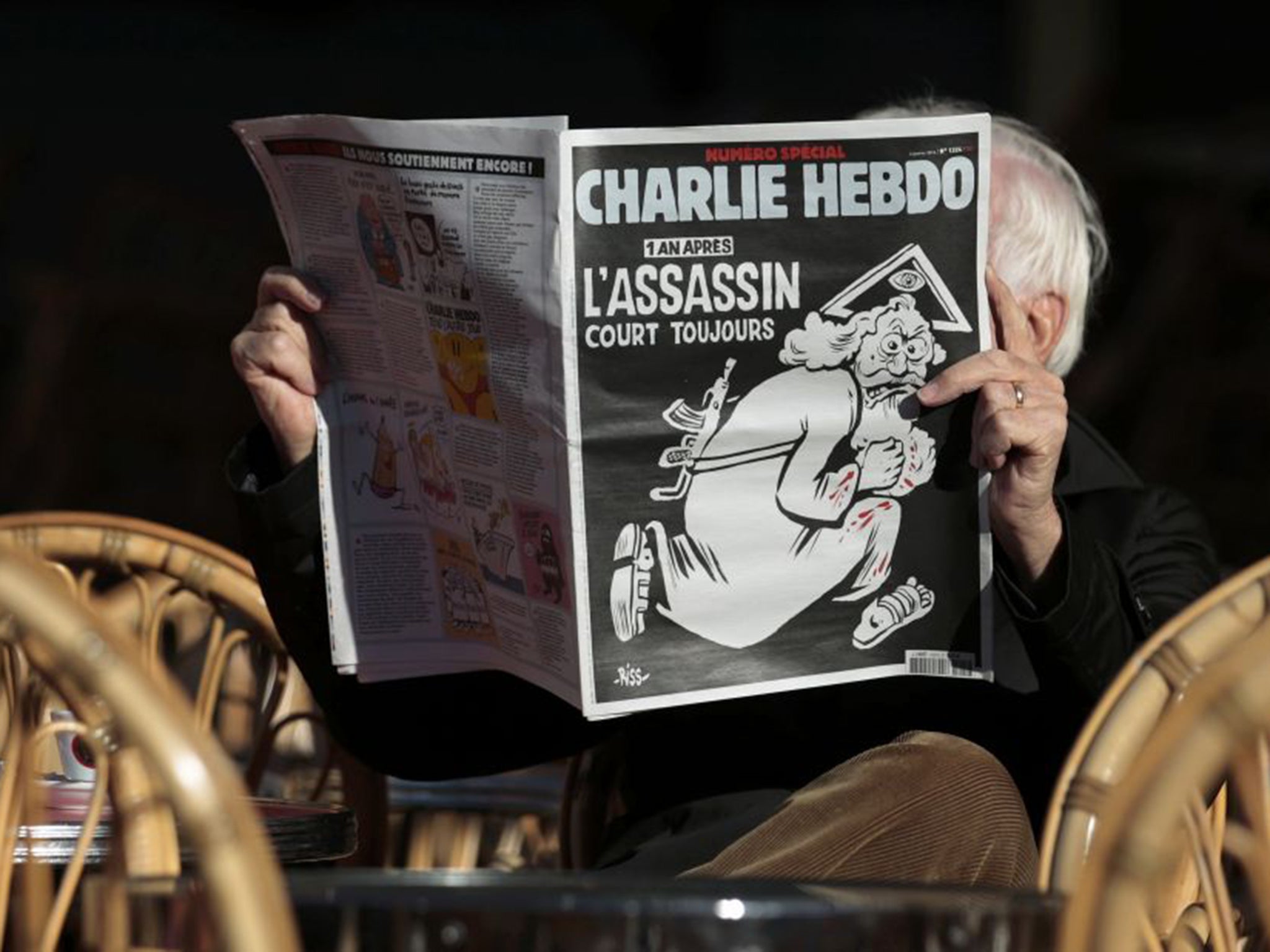Charlie Hebdo's latest editorial identifies Muslims as the solution, not the problem - how is that Islamophobic?
Since it was awarded the PEN Freedom of Expression Courage Award last year, the satirical magazine has bashed by critics who have cherry-picked and misinterpreted cartoons and editorials for the sake of their argument

Your support helps us to tell the story
From reproductive rights to climate change to Big Tech, The Independent is on the ground when the story is developing. Whether it's investigating the financials of Elon Musk's pro-Trump PAC or producing our latest documentary, 'The A Word', which shines a light on the American women fighting for reproductive rights, we know how important it is to parse out the facts from the messaging.
At such a critical moment in US history, we need reporters on the ground. Your donation allows us to keep sending journalists to speak to both sides of the story.
The Independent is trusted by Americans across the entire political spectrum. And unlike many other quality news outlets, we choose not to lock Americans out of our reporting and analysis with paywalls. We believe quality journalism should be available to everyone, paid for by those who can afford it.
Your support makes all the difference.Charlie Hebdo’s latest editorial has given rise to a new wave of public outrage, with esteemed writer Teju Cole comparing the magazine’s satire to Trump’s rhetoric and Nazi logic. Whether one agrees with the latest editorial or not, drawing this historical parallel is far-fetched. The difference is threefold: first, Charlie Hebdo’s mockery is targeting abstract concepts, ideologies and powerful elites rather than vulnerable individuals. Second, the goal of the journalists is to incite laughter, not hatred or fear. Third – and most importantly – the satirists are not abusing freedom of expression for the sake of politics; they are abusing politics for the sake of free expression.
“It is worthwhile to die for things without which it’s not worthwhile to live,” the Uruguayan journalist Eduardo Galeano said once. Charlie Hebdo cartoonists died in defence of secularism and the freedom to draw and to laugh. Since Charlie Hebdo was awarded the PEN ‘Freedom of Expression Courage Award’ last year, the satirical magazine has bashed by critics who have cherry-picked and misinterpreted cartoons and editorials for the sake of their argument.
Some of its most vocal critics have labelled the satirical magazine as racist, Islamophobic and blasphemic, ignoring the fact that Marine Le Pen and Donald Trump are at least as often featured in Charlie Hebdo’s cartoons as Jesus, the Pope and the Prophet Mohammed.
Terrorists have succeeded in creating an atmosphere of fear across continental Europe. Both far right movements and Islamist extremist recruiters thrive in this environment, the ‘new norm’, where anxiety reigns over people’s political decisions and everyday choices. What Charlie Hebdo – in, I admit, a clumsy way – was saying in its editorial this week is that we must foster an environment of open discussion, courage and free expression to overcome these fears and taboos, which are easily exploited by extremists.
Charlie Hebdo’s latest editorial does therefore not depict Muslims as enemies, but as necessary partners; it does not view them as the problem, but as the solution.
In contrast to political figures like Marine Le Pen, Donald Trump and Anne Marie Waters, Charlie Hebdo does not use freedom of expression as a means but as an end. The cartoonists’ aim is to peacefully keep drawing and asking questions. Even within Charlie Hebdo there is a range of political views and ideological convictions – they only agree on one thing, and that is that no idea should be beyond scrutiny.
They want more debate, rather than less, and more tolerance, rather than less – by using pens instead of guns and laughter instead of tears.
So no, I do not see the parallel to Hitler, Trump or Marine Le Pen, who all tried to monopolise or shut down the debate, and exploit or create divisions and tensions.
Charlie Hebdo’s mission statement reads more like a 21st century version of Voltaire than an Islamophobic version of ‘Mein Kampf’. In the long French tradition of absurdist satire, they can achieve what conventional journalists cannot: expose the grotesque absurdity of ideas that shape our society.
This being said, Charlie Hebdo cartoons have become cruder, more vulgar and less trenchant in the last year, probably owing to the fact that most of its leading cartoonists were shot dead.
According to a ComRes poll, 27 per cent of 1,000 Muslims polled admitted that they had sympathy with the Charlie Hebdo attacks. While we can disagree with their drawings and words, it is their right to ask the question: “How did we end up here?” And demanding their silence is far more dangerous than pondering that question.
Join our commenting forum
Join thought-provoking conversations, follow other Independent readers and see their replies
Comments